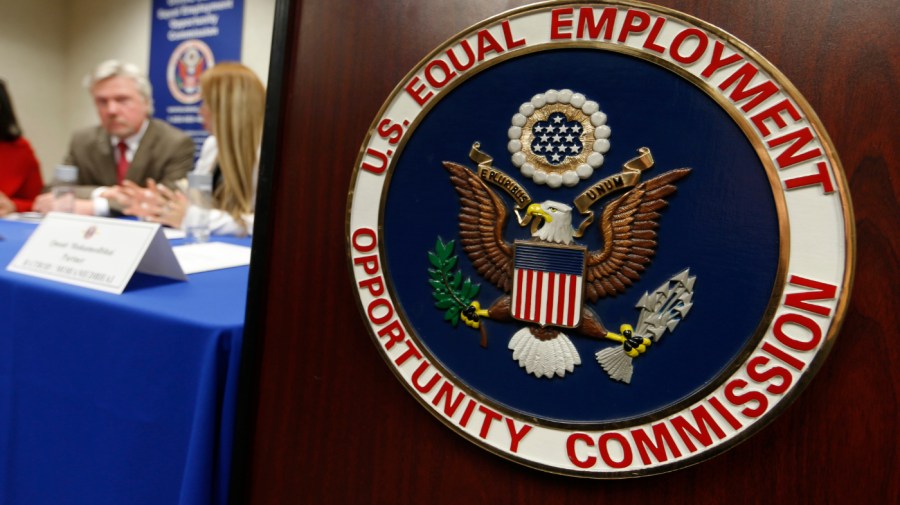Politics
EEOC Changes Course on Discrimination Claims, Workers Respond

The Equal Employment Opportunity Commission (EEOC) has decided to abandon longstanding precedents regarding discrimination claims, raising concerns among workers nationwide. This shift could significantly affect how disparate impact claims are evaluated in U.S. courts.
Historically, the EEOC played a pivotal role in protecting worker rights against discriminatory practices, particularly those that disproportionately affect certain groups. However, recent developments suggest a move away from this protective stance, prompting many to question the implications for employees seeking legal recourse.
According to an official statement from the EEOC, the agency’s decision reflects a strategic reassessment of its approach to handling discrimination claims. The EEOC stated, “We believe it is time to align our practices with the current legal landscape.” This shift may have significant ramifications for the ability of workers to pursue claims related to employment discrimination based on indirect effects.
Impact on Workers and Legal Landscape
Despite the EEOC’s decision to withdraw from pursuing certain claims, legal experts assert that the judicial system remains accessible to workers with disparate impact claims. This means that individuals can still seek redress through the courts, even if the EEOC is no longer actively supporting these claims at the administrative level.
The potential for legal challenges remains, as workers are encouraged to explore their options for litigation. Legal professionals warn that while the EEOC’s shift may complicate matters, it does not eliminate the possibility of success in court. The legal community is closely monitoring the situation, as it could lead to an increase in private lawsuits.
In light of this decision, employees may wish to consult legal counsel to understand their rights and the best course of action. Legal experts recommend that workers document any instances of perceived discrimination to strengthen their cases if they decide to pursue claims independently.
Future Considerations
The EEOC’s new direction raises questions about the future of discrimination claims and the protections available to workers. Organizations like the American Civil Liberties Union (ACLU) and various labor unions have voiced their concerns, emphasizing the need for robust protections against discriminatory practices.
As the legal landscape evolves, workers must remain vigilant and informed. The shift in EEOC policy could lead to a significant transformation in how discrimination claims are approached in the courts. For now, workers are encouraged to stay aware of their rights and consider legal support as they navigate this changing environment.
The implications of this decision may unfold over time, but one certainty remains: the pursuit of justice for discrimination in the workplace continues, albeit through potentially new avenues.
-

 Business1 week ago
Business1 week agoIconic Sand Dollar Social Club Listed for $3 Million in Folly Beach
-

 Politics1 week ago
Politics1 week agoAfghan Refugee Detained by ICE After Asylum Hearing in New York
-

 Health1 week ago
Health1 week agoPeptilogics Secures $78 Million to Combat Prosthetic Joint Infections
-

 Science1 week ago
Science1 week agoResearchers Achieve Fastest Genome Sequencing in Under Four Hours
-

 Lifestyle1 week ago
Lifestyle1 week agoJump for Good: San Clemente Pier Fundraiser Allows Legal Leaps
-

 Health1 week ago
Health1 week agoResearcher Uncovers Zika Virus Pathway to Placenta Using Nanotubes
-

 World1 week ago
World1 week agoUS Passport Ranks Drop Out of Top 10 for First Time Ever
-

 Business1 week ago
Business1 week agoSan Jose High-Rise Faces Foreclosure Over $182.5 Million Loan
-

 World1 week ago
World1 week agoRegional Pilots’ Salaries Surge to Six Figures in 2025
-

 Science1 week ago
Science1 week agoMars Observed: Detailed Imaging Reveals Dust Avalanche Dynamics
-

 Entertainment1 week ago
Entertainment1 week agoJennifer Lopez Addresses A-Rod Split in Candid Interview
-

 Top Stories1 week ago
Top Stories1 week agoChicago Symphony Orchestra Dazzles with Berlioz Under Mäkelä









